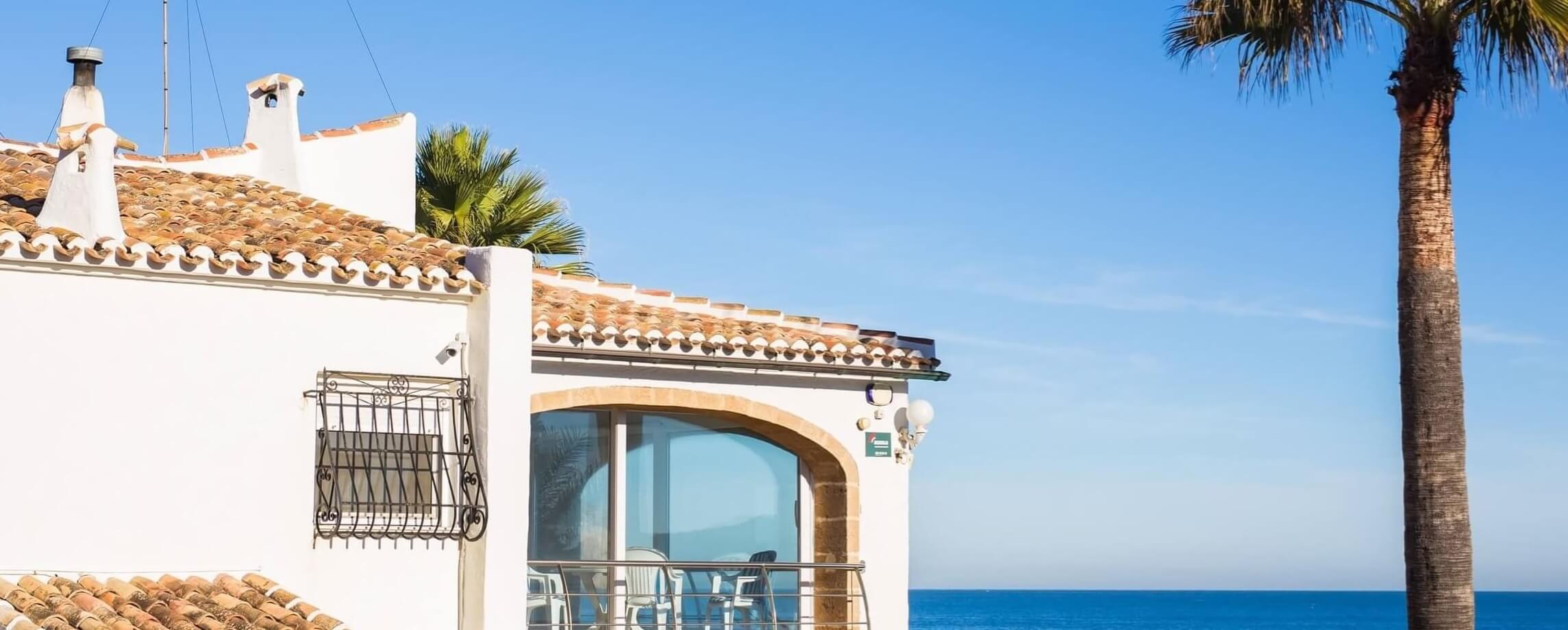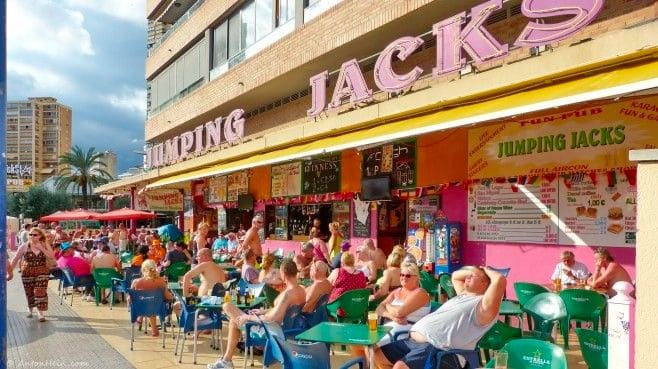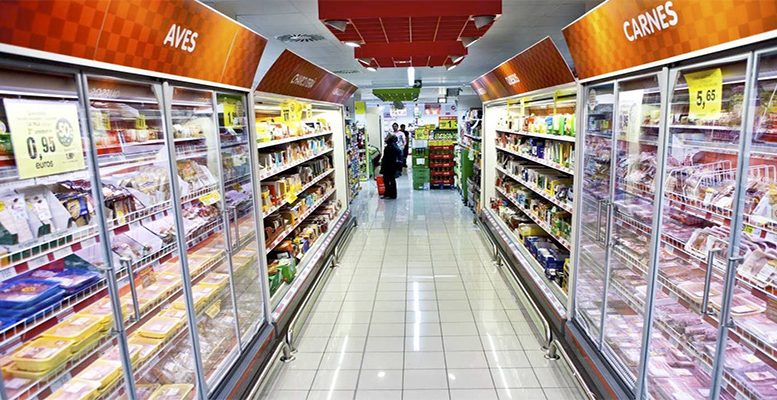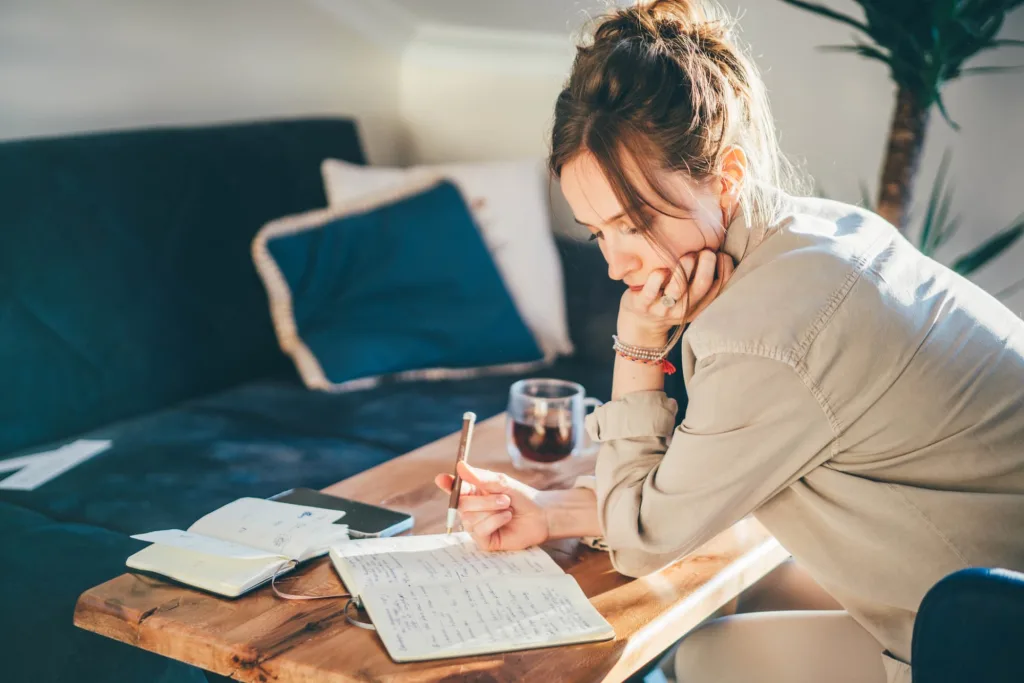When you buy a Spanish property, you will highly likely be dealing in Euros (unless the buyer is from your home country and would like to sell in that currency, but that is a topic for another article). Many international buyers have their property purchasing funds in another currency, such as Pounds Sterling, Swiss francs, or US dollars. This means they must buy Euros in order to buy the property. Foreign currency exchange is an area where many lose money, as when buying Euros, you may end up paying far more than necessary if you are not knowledgeable about where to buy.
For this post, we will assume your funds are in Pounds Sterling. As well as who you buy from, the timing of your Euros purchase can also have a significant influence on the overall price you pay in Pounds Sterling.
Here is a current (April 2020) example:
Last week a €250,000 property in Spain was worth the equivalent of £217,390 or $271,625.
This week the same property will cost you £218,055 or $269,125.
In just one week, the cost to you has risen by £665 or $2,500.
Forex markets are complex, and as a result, during our many years of experience selling property to international buyers, we have seen numerous people overpaying for the Euros needed to buy their property. They then go take avoidable risks once they have taken on a Euro exposure. Euro or transaction exposure is the level of uncertainty involved in international trades. Explicitly, it is the risk that foreign currency exchange rates will fluctuate after a company or individual has already initiated a financial deal. The high possibility of changing exchange rates can lead to major losses in international business dealings.
Even after you have bought your Spanish property, you might still need to make regular money transfers to and from Spain, involving foreign currency exchange. Even though the amounts are likely to be relatively small compared to when buying your home, they do add up over time. Many people continuously overpay for foreign currency when transferring small amounts to and from Spain. Even Spanish buyers, with investments abroad are now using the Forex markets more when buying local property.
Foreign currency exchange FAQS
What Is The Forex Rate?
The foreign currency exchange rate is the price to buy one currency unit when you want to buy using a different currency. In this way, exchange rates are comparable to the price ticket on any product you may see for sale in a shop or supermarket, for example.
Currencies are bought and sold on the international foreign exchange market five days a week in incredible volumes (the combined value of daily transactions worldwide is about 1.6 trillion USD). Currency exchange rates move up and down in a random way in response to immediate short-term levels of supply and demand. In the medium term, exchange rates indicate the differentials in interest rates between diverse currencies, and long-term fluctuations reflect the differentials in the inflation rate among economies. When buying a property abroad, all you really need to know is exchange rates are continually changing (every 2 seconds), and it is useless to try to predict with any conviction how they could move.
How does this affect my property transaction?
When you buy property in Spain, you commit to a Euro exposure – an obligation to pay a certain amount of Euros by a specified day in the future. Unless you already possess Euros (for instance, you get paid in Euros or have savings in Euros) you will need to purchase Euros using Pounds or another currency. Consequently, it is the cost of your Spanish property purchase in GBP that is of most interest to you.
However, since exchange rates are continually changing, the value of your Euro exposure in Pounds is also constantly changing. The fluctuations in the GBP/Euro exchange rate could have a huge impact on the pounds price you end up paying. The following example using (GBP/EUR) demonstrates the impact the exchange rate fluctuations can have on how much you pay for your new home
Let us take a look an at an example, using data from the GBP/EUR exchange rate during the last three months of 2015.
The exchange rate went from around 1.35 €/£ at the start of October 2015, to 1.43 €/£ halfway through November, and again back down to 1.35 €/£ at the end of December. This translates to a maximum change of 6% during the three months. On a property purchase of €200,000, that is a €12,000 variance depending on the date of the sale. Such exchange rate shifts can have a significant impact on the price you finally pay when your funds are in another currency.
This is an essential consideration if you sign a contract to complete the sale within a timeframe of months. Because Forex rates are constantly changing, you do not have a way of knowing home much the Euros will cost you when it is time to complete. This is even more of an issue when buying off-plan or under construction, because completion could be six months away or more.
Typically, when you buy a resale home in Spain you pay a deposit of about 10% when you sign the “Contrato de Arras”, the private sale contract between the buyer and seller. At this stage, many buyers pay with Euros bought from their bank at exorbitant rates. The remaining 90% of the selling price is due at the time of signing the title deeds before the Notary. Usually, the completion day is between 1 and 4 months after the signing of the private sale contract. Due to the time frame, the buyer will carry a Euro liability for a few months, but the fluctuations in the exchange can still have a significant impact on the price of other currencies, even during a relatively short time frame
How can I manage the risk if high foreign exchange costs?
When you sign to buy a property in Spain and take on a Euro liability and your funds are in another currency, it is important to manage your currency exchange rate risk.
Most people get their foreign currency from their banks. But high street banks typically offer the worst currency exchange rates on the planet. People continue to use banks out of a habit formed when buying holiday currencies, and because they are unaware they can get a much better rate elsewhere.
The best place to get Euros is from a foreign currency dealer. They tend to offer the most favourable rates, can lock you in at an agreed rate, charge the lowest commissions, and provide professional advice on managing exchange rate risks.
Nevertheless, using a currency broker is not entirely without risk, with the most serious being the broker going bankrupt while in possession of your money. So, make sure the broker you use has professional indemnity insurance and uses client accounts to safeguard your money. Also, make sure they are authorised and regulated by the Financial Conduct Authority if you are from the UK.






